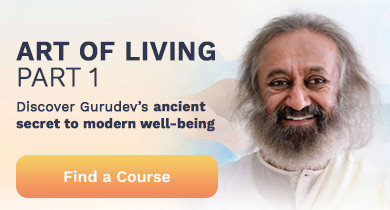By Eloise Ducker
Heart health and meditation go hand in hand, learn about scientifically validated benefits you should know.
You have a beating heart inside of you. Perhaps you can even feel it.
It is about the size of your fist, and beats around 100,000 times a day. It pumps nutrient-rich, oxygenated blood around your body via the circulatory system—it gives you life. So to live and live well, heart health is vital.
Heart disease, however, is the number one cause of death in the USA—one person dies every 37 seconds. Therefore it’s essential we know how to manage cardiovascular risk factors—high blood pressure, diabetes, high cholesterol, stress —associated with heart disease, heart attacks, and other cardiovascular diseases.
The good news? Research has shown many benefits of meditation including a positive link between meditation and heart health. Let’s dive in to learn more!
1. People who meditate are less likely to have a heart attack or stroke
Scientific studies at research institutes throughout the world have documented the countless benefits of meditation—including heart health and a positive impact on heart rate variability. In June 2020, The American Journal of Cardiology found that meditation is associated with a lower prevalence of cardiovascular risk factors and disease. This supports previous studies showing people who meditate are less likely to have a heart attack or stroke—some studies show a reduced incidence of cardiovascular disease by 88%!
Cardiologist Dr. Deepak Bhatt, a professor at Harvard Medical School, states “[Meditation] can lower your heart rate, blood pressure, breathing rate, oxygen consumption, adrenaline levels, and levels of cortisol, a hormone released in response to stress."
2. Not at risk? Think again.
Contemporary society, by its nature, is stressful. The speed, the stimuli online and offline, diet and lifestyle, competing demands at home and work, expectations of what a happy life looks like, the increasing prevalence of anxiety and depression. And then there are the environmental toxins!
Each day the heart (and mind!) are under stress to varying degrees. A study in the Lancet showed a correlation between stress and an increased number of heart attacks. Stress not only impacts our mental health with anxiety and depression but on a major physical level too. It’s important to note here that these mental and physical ailments can also become a source of stress in themselves—a vicious cycle starts. Stress reduction therefore is a vital key to a healthy heart and the prevention/management of cardiovascular risk factors.
Dozens of studies, including a recent Yale study, have shown that meditation can significantly reduce anxiety and depression. Meditation also has been shown to rapidly reduce stress hormones—even in those new to the practice—in some instances starting from the very first session.
3. You’ve got a hidden superpower—can you guess what it is?
Your breath! Over 100+ independent studies have demonstrated that through an evidence-based practice involving a sequence of breathing techniques known as SKY Breath Meditation (SKY), there are measurable improvements in mental and physiological states.
Specifically for heart health, it showed a 56% reduction in the stress hormone cortisol (after just two weeks of practicing SKY), lower cholesterol and blood pressure—which we’ll explore below.
A recent study out of University of Arizona/Harvard showed SKY practitioners showed fewer cardiac signs of stress before a stressful event and significant reductions in anxiety and depression (more than other techniques such as mindfulness meditation)—which all impact the heart.
4. Significantly improve your heart health in under 15 days
Independent research has shown that when SKY Breath Meditation is practiced by both healthy individuals and those already suffering from hypertension (high blood pressure), there's a significant drop in both heart rate and blood pressure in as little as 15 days.
The astonishing fact is that these changes still occur independently of any dietary changes.
5. No. 1 meditation technique for cardiovascular health
There are many practices out there, but if you want a specific technique that’s been scientifically validated, to positively impact your cardiovascular health, and reduce your risks of heart disease, then it is worth exploring SKY Breath Meditation. Learn more here.
If you’d like a taster of what to expect, join this free workshop, Beyond Breath, and discover how SKY can support your heart, provide stress reduction, and improve your mind-body well-being for life.
Remember, whilst stress is a major risk factor for heart disease, it has been shown to either cause or aggravate 80% of all disease. That alone is a big enough motivator to begin a regular meditation practice and one that is proven to provide cardiovascular risk reduction and a decrease in cortisol from the very first session! Lastly, exercise and diet also play a significant role in your well-being—and the practice of meditation can help cultivate focused attention to make these lifestyle changes that support a healthy, happy life.
Disclaimer: This content on the Art of Living Blog is not intended to be a substitute for professional medical advice, diagnosis, or treatment. Always seek the advice of your physician or other qualified health providers with any questions you may have regarding a medical condition, Any links to third-party websites are provided as a convenience only and the Art of Living Blog is not responsible for their content.

Eloise Ducker is a freelance copywriter and yoga teacher dedicated to creating space for people to breathe and find ease, wherever they are.





























